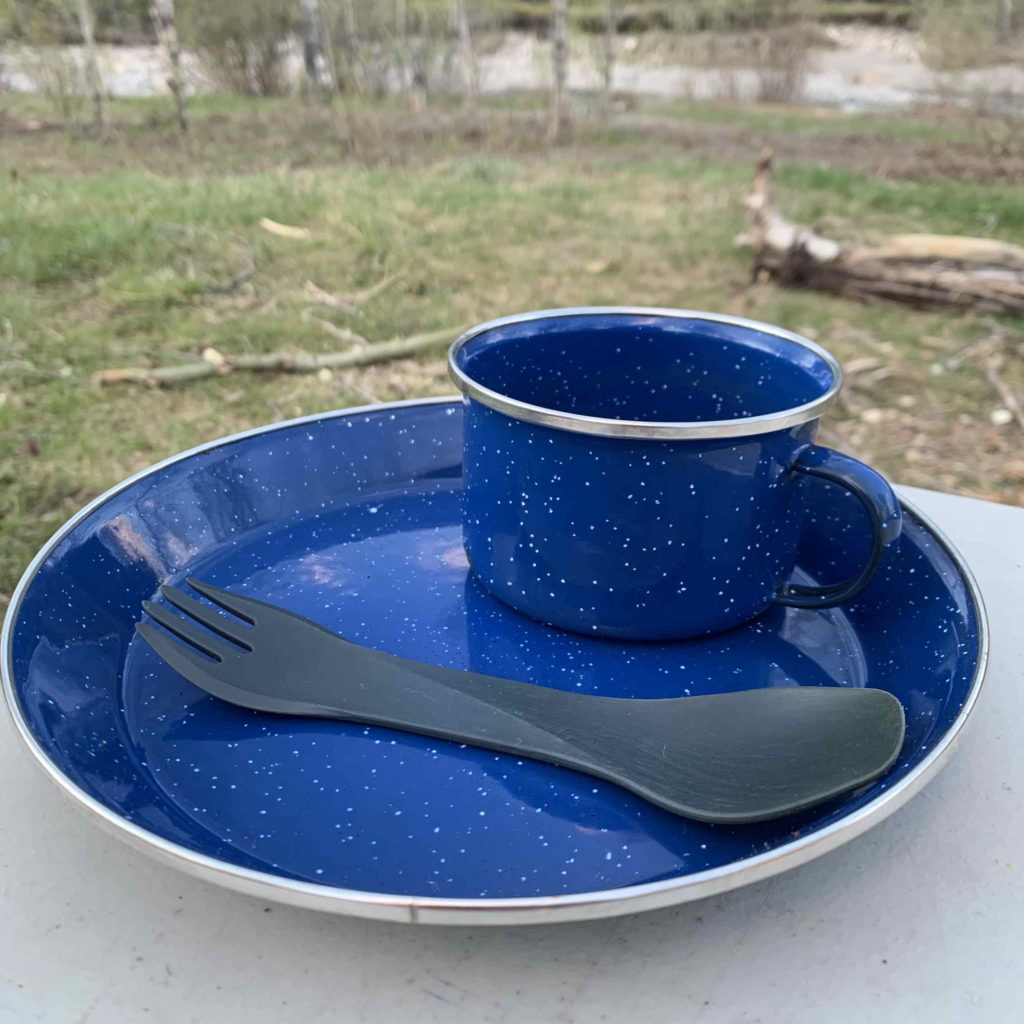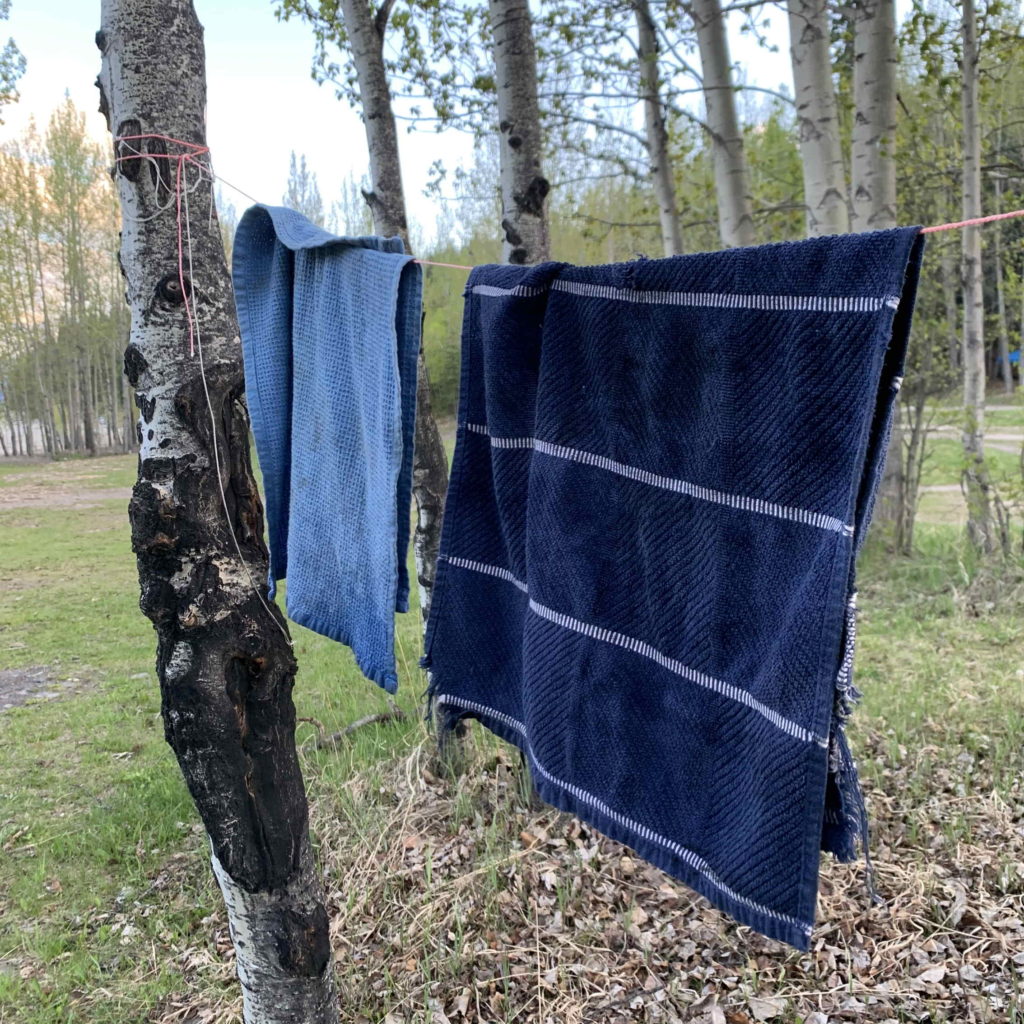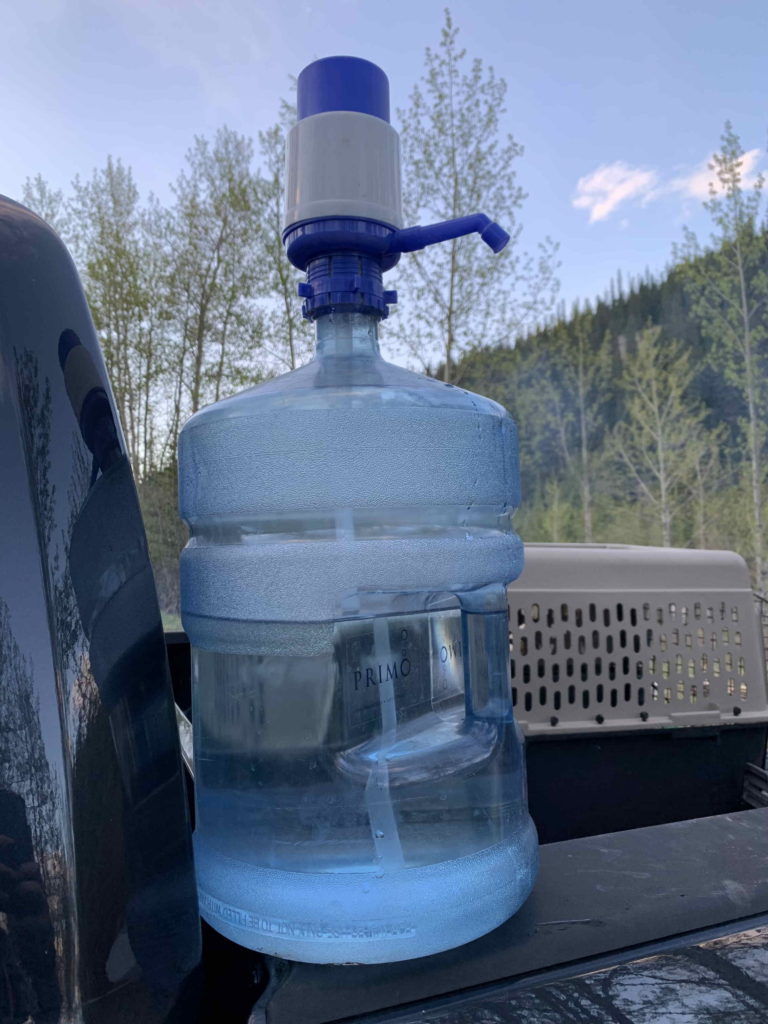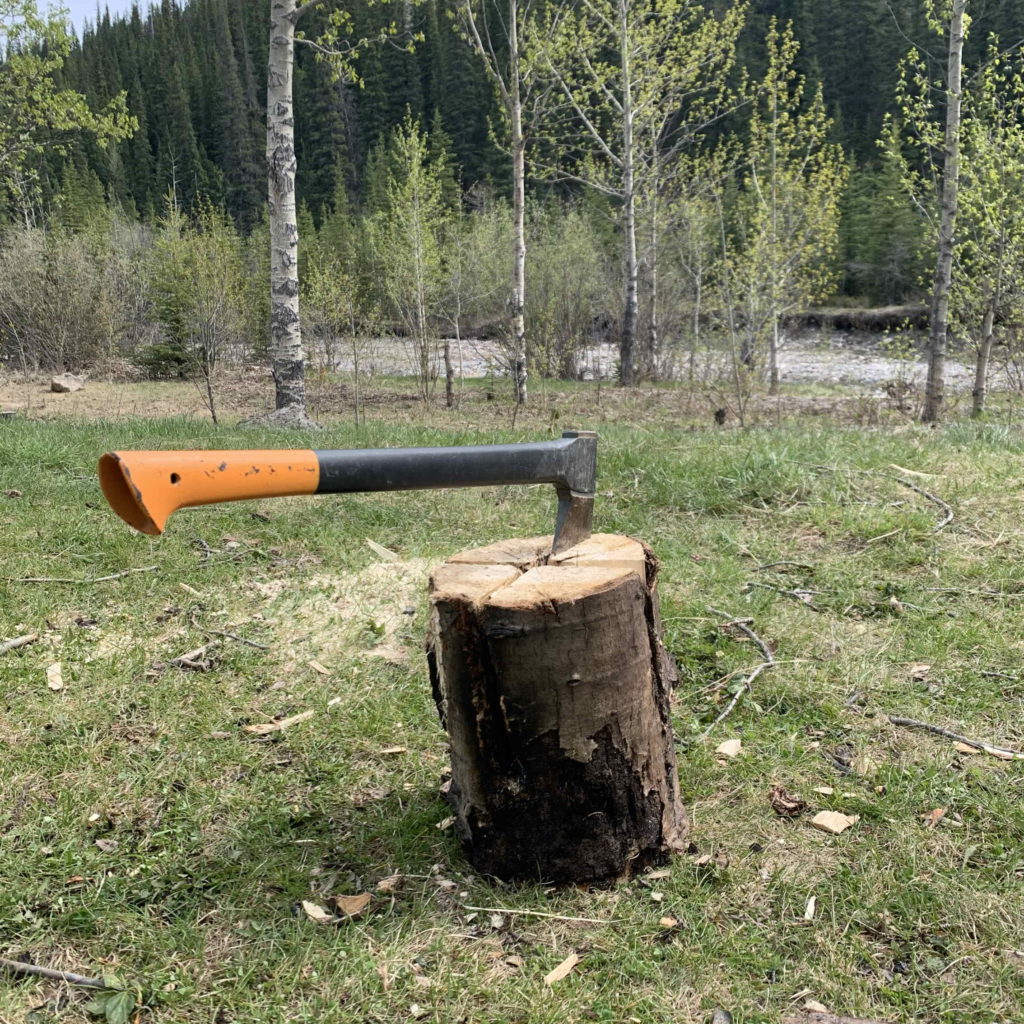Getting outside and enjoying the outdoors this summer doesn’t have to come at the expense of the environment. As we book campsites and start packing for weekend getaways, thinking of how we can reduce our consumption and cut back on plastic waste we generate will make for a smaller, eco-friendly camping excursion. Let’s keep our memories and mementos of trips in our hearts and minds and not in a landfill.
1. Opt for reusable plates and cutlery rather than disposables.
There’s no need to buy new. It is super affordable / achievable to camp with reusables. You can use what you already have, buy second hand goods, borrow from a friend, or invest in a quality set of packable cutlery.

2. Plan your ice strategy.
There are a couple ways to prepare ice that avoid that thick plastic bag.
Search for a locally-owned restaurant and give them a call. Ask if you could purchase some ice from them and if they could fill your cooler.
Also invest in some good-quality, reusable ice packs, and make your own ice a few days ahead of time.
3. Skip the paper towels and sani-wipes, use rags instead.
Any single-use paper products or one-time wipes just add waste when perfectly good alternatives exist. You have rags and cloths around your home just waiting to tag along on the trip, and you can allocate them however you wish: rags for clean-up, dish cloths for doing dishes, tea towels for drying dishes, and hang on a line to dry!

It’s always important to use biodegradable soap for all these activities while camping, especially if there’s no place to dump gray water.
4. Reuse non-recyclable/non-reusable food packaging to collect your waste.
Planning for waste free camping can start long before the actual event. For those times when you need a bag to collect waste, don’t go out and buy more bags, use the few bags you might have on hand, like chip or cereal bags.
Purchasing more plastic bags only increases the demand and the market for plastic. Use what you already have!
5. Use a single large water jug instead of smaller bottles.
Single-use plastic bottles are an inefficient way of toting around water at a campsite. Use a 15-25L water jug with a pump and refill smaller containers as needed. Better yet, the jug can also be recycled at the end of its lifespan.

6. Prep your food at home.
Plan a meal schedule for your trip based on the length of your stay and your resources. Give yourself some options for each meal on each day and then make it! Creating food from home avoids the need to purchase food wrapped in plastic that only adds to the waste you have to dispose of.
7. Pack your food in reusable jars/containers.
Now that you’ve made your food, how are you going to transport it?
Use watertight containers to prevent your food from becoming soggy as your ice melts. Reusable containers also allow you to save leftovers — a lot tougher to do with flimsy plastic!
Also, consider the sizes of your containers and whether they’re in line with what you need. If you know you only use 1 litre of milk, don’t bring the 2 litre carton — pour liquids and other foods into more appropriate vessels.
8. Don’t buy your firewood in plastic packaging.
Many campgrounds have a wood pile available on site. Be sure to call and ask ahead of time and save yourself the work.
Many farmers or acreages often sell firewood on the side of the road without packaging. Keep an eye out for signs and numbers!

Finally, check classifieds like Kijiji and Facebook Marketplace in your area or your destination.
9. Carpool
If possible and if safe to do so, carpool to lower your carbon footprint. If not, coordinate among your fellow campers to minimize stops for other needs.
10. Leave your site better than how you found it.
Don’t “waste” the opportunity to beautify and show respect for our parks and environment! Take care of our natural sites and they will take care of you.
Any camper knows what you pack in, you pack out. But sometimes this isn’t always the case. When you go camping, be aware that you might need to tidy up after the last visitors or more! Be the best guest you can be.

Camping is one of those incredible activities that’s adaptable to all ages and abilities, and investing in good waste free tools and practices is something that will last generations!
Visit Alberta Parks for more information on camping in Alberta.

